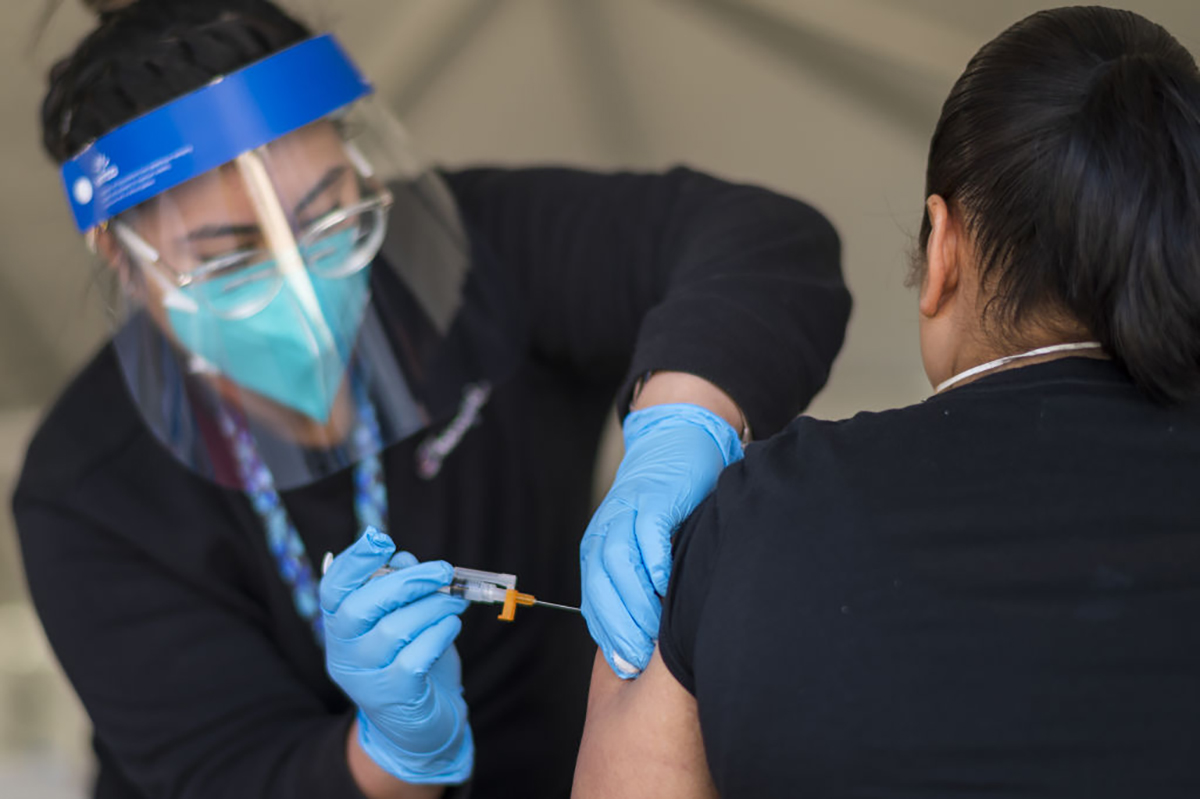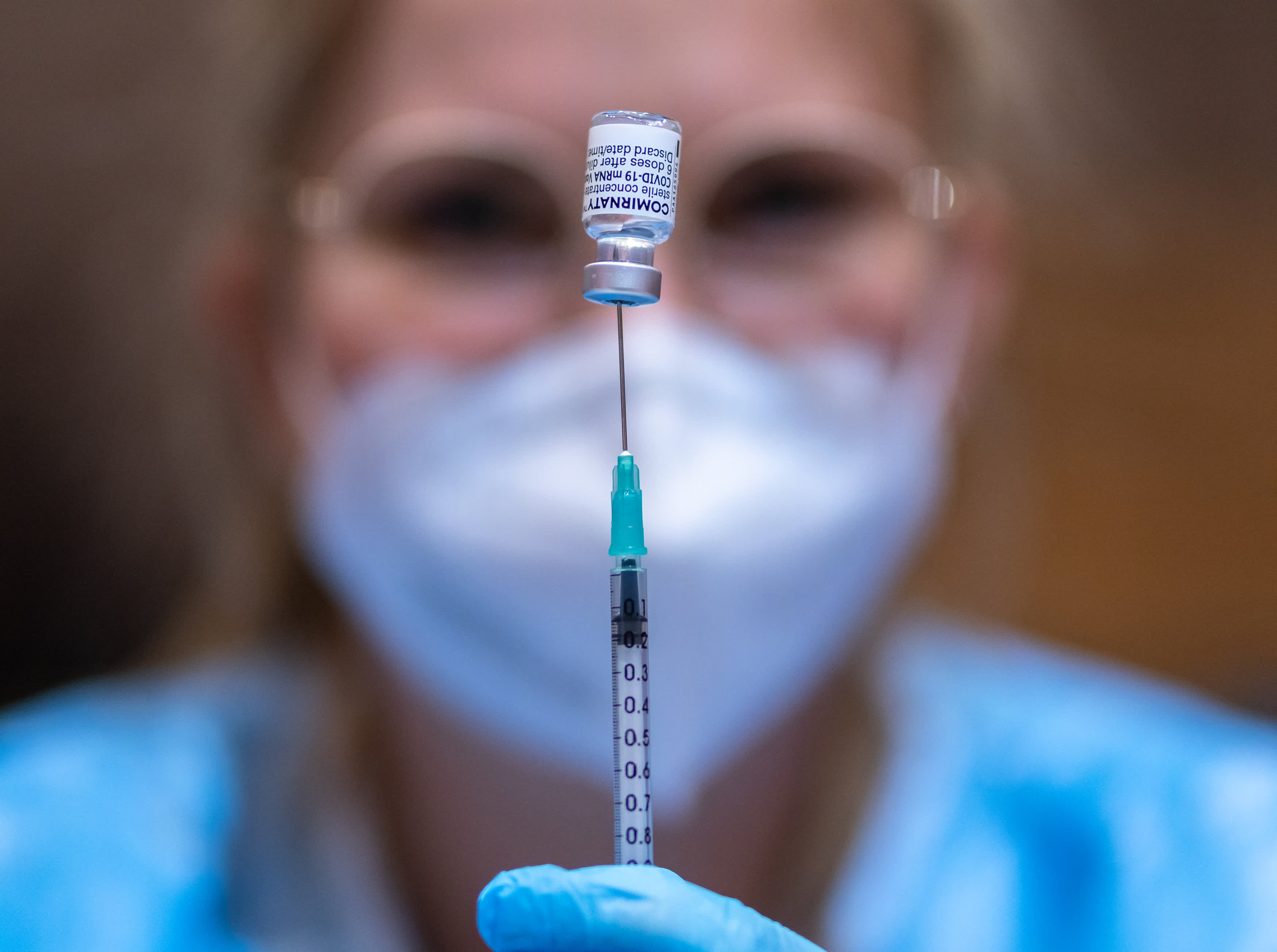Experts have made clear that getting the COVID vaccine offers plenty of protection from coronavirus, but can it prevent you from spreading it to others?
Yes, it can, but the answer is also a bit more complicated.
According to the Centers for Disease Control and Prevention, "we’re still learning how vaccines will affect the spread of COVID-19."
"After you’ve been fully vaccinated against COVID-19, you should keep taking precautions – like wearing a mask, staying 6 feet apart from others, and avoiding crowds and poorly ventilated spaces – in public places until we know more," the CDC states.
Data has shown that you can still get coronavirus even after you're fully vaccinated, which means if you do get an infection, you could still spread it.
"The risks of SARS-CoV-2 infection in fully vaccinated people cannot be completely eliminated as long as there is continued community transmission of the virus," the CDC recently reported. "Vaccinated people could potentially still get COVID-19 and spread it to others."
In Chicago, the city has reported close to 100 "breakthrough" cases, which are confirmed coronavirus cases in fully vaccinated residents. By comparison, state data shows 396,022 residents have been fully vaccinated.
"We have had cases here in Chicago of people who have been fully vaccinated," Chicago Department of Public Health Commissioner Dr. Allison Arwady said during a Facebook Live last week, noting that it's a "small number."
The Illinois Department of Public Health told NBC 5 in March that it is also tracking cases of individuals who have been vaccinated and test positive for COVID-19. According to IDPH data from early March, of the more than 1.6 million people who are fully vaccinated, 217 reported a positive test more than two weeks after their last vaccine dose.
Feeling out of the loop? We'll catch you up on the Chicago news you need to know. Sign up for the weekly> Chicago Catch-Up newsletter.
“We shouldn’t be surprised about some people still getting infected, especially if they have high risk exposures, like a household exposure, but what we shouldn’t expect are severe infections because we know the vaccines were highly protective against from any hospitalizations,” said Dr. Jonathan Pinsky, a medical director and infectious disease control and prevention specialist at Edward Hospital.
Still, in Chicago, people who have contracted COVID after being fully vaccinated - considered two weeks after your first shot of the Johnson & Johnson vaccine or two weeks after your second shot of the Pfizer and Moderna vaccines - have largely been asymptomatic.
"Most of those people are asymptomatic, and they get picked up because we continue to do a lot of routine testing in high-risk settings, in long-term care facilities, in hospital settings, etc." Arwady said.
A recent CDC study, however, found that "a growing body of evidence suggests that fully vaccinated people are less likely to have asymptomatic infection and potentially less likely to transmit SARS-CoV-2 to others."
"However, further investigation is ongoing," the CDC stated.
Regardless, Arwady said the risk of reinfection is part of the reason experts continue to advice vaccinated people to still follow public health guidelines.
"Even a fantastic vaccine like this one - you know, 95% effective... is not 100% protective and so that's where some of the guidance around if you are out in public, you know, to continue to wear the mask really comes through," Arwady said.
While the vaccine itself cannot give you the virus, it is also not 100% effective at preventing the virus entirely, though those who receive the vaccine are far less likely to be hospitalized or die from it, data shows.
In clinical trials, Moderna's vaccine reported 94.1% effectiveness at preventing COVID-19 in people who received both doses. The Pfizer-BioNTech vaccine was said to be 95% effective.
The FDA said Johnson and Johnson’s single-shot vaccine was 85% protective against the most severe COVID-19 illness, according to a study that spanned three continents. It also showed protection against COVID-19 related hospitalization and death, beginning 28 days after vaccination.
For a complete breakdown of the three vaccines, click here.
Health experts have also expressed concern about new and emerging variants of the virus, which are believed to be more contagious. Though studies have shown the current vaccines provide protection against known variants so far, they may not be as effective against the new strains.
The variant from South Africa, for example, reduced Pfizer-BioNTech's antibody protection by two-thirds, according to a February study. Moderna's neutralizing antibodies dropped six-fold with the South Africa variant, CNBC reported.
But boosters and new versions of vaccines that target the variants are already being explored.



